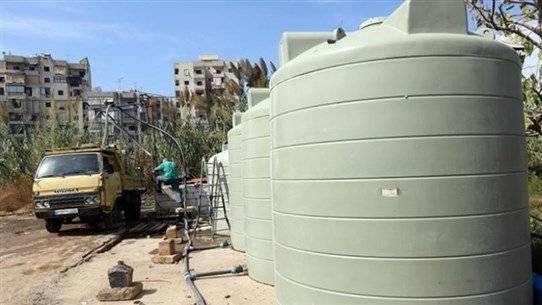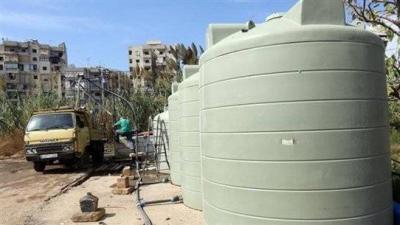Rivers and ponds are the almost sole water sources in most Lebanese villages, but it is difficult to fully disinfect them, like any other water source, from cholera bacteria due to the impracticality of using any disinfectant on such a large quantity of water. Additionally, the general electricity outage, which halted pumping from groundwater and disrupted treatment plants, has left the Lebanese with no choice but to resort to “water trucks,” without going through any purification or disinfection process, neither for the transported water nor for the tanks themselves if they are contaminated.
Cholera does not spread in countries where water treatment facilities operate normally; however, Lebanon faces countless problems, with its dilapidated sewage networks being one of them. While main cities have sewage networks, they discharge directly into the sea without passing through treatment plants. In villages, wastewater is primarily discharged into rivers and, secondarily, into “cesspools,” which are holes in the ground that collect sewage from houses only to later seep into the ground towards groundwater reservoirs (aquifers) or into rivers. Consequently, there is no real treatment process that kills the harmful bacteria discharged from our bodies before reusing water for service or even drinking.
In addition to the above, there are refugee camps where the majority of wastewater flows into river channels, exacerbating the condition of surface water. This pollution cannot be removed by natural factors such as sunlight or plants but will only increase, especially if rivers turn into closed gathering places like ponds. Therefore, a significant proportion of the Lebanese population uses water contaminated with “human waste,” as evidenced by various studies from multiple entities, including the Ministry of Health and the Lebanese University.
Moreover, the risk of cholera bacteria in water will increase if the rainy season is delayed, as the lower the water supply, the higher the concentration of bacteria. Thus, it can be said that a good rainy season will reduce risks, at least until the beginning of next summer, but it is too early to conclude this now at the start of autumn.
### Killing Cholera
Dealing with water transported in tanks from ponds and rivers should be based on the principle that “everyone is a suspect,” so there is no room for trust in the cleanliness of the water and its freedom from bacteria, especially cholera. This latter will exist in the stool of an infected person for “up to ten days, even if they do not show severe diarrhea symptoms.” In our case, with the absence of real sewage systems, we treat every quantity of water as contaminated and must disinfect it. According to Professor of Microbiology at the Faculty of Sciences Mohammed Azeddine, “This process is very easy and only requires using cleaning materials found in every household, namely chlorine, in its various commercial names.”
Azeddine adds: “Cholera bacteria, despite their health risks, are easy to eliminate in limited quantities of water,” explaining the process as follows: “Each liter of water requires just two drops of household chlorine.” A tank of 2,000 liters, or what is known as “ten barrels,” needs “15 milliliters” or “3 tablespoons” by household measurements. After that, this quantity of water should be allowed to sit for 15 minutes before being used for service or even drinking. Experts warn against excessive use of “chlorine” in large quantities, as it may cause reactions and allergies in some individuals. Azeddine advises using pharmacy-grade chlorine for its milder effect on household use and health.
### Food Disinfection
The danger of cholera is not limited to water alone. In Lebanon, this bacteria can spread hundreds of kilometers to infect places far from the original spread points, notably through the transportation of fruits and vegetables irrigated with contaminated water from one region to another. However, “there is no need to panic,” as the bacteria will not inhabit the heart of agricultural products, but will exist on their surfaces and exterior, specifically in the droplets of water remaining on them, which can be disinfected using the same solutions used to disinfect water, in the same quantities.
Foods that are entirely forbidden to eat today include raw meats in general, and fish in particular. In Lebanon, there are salmon farms where some have the habit of consuming the fish raw, which may carry cholera bacteria inside their flesh, which can only be eliminated by cooking and high heat.




